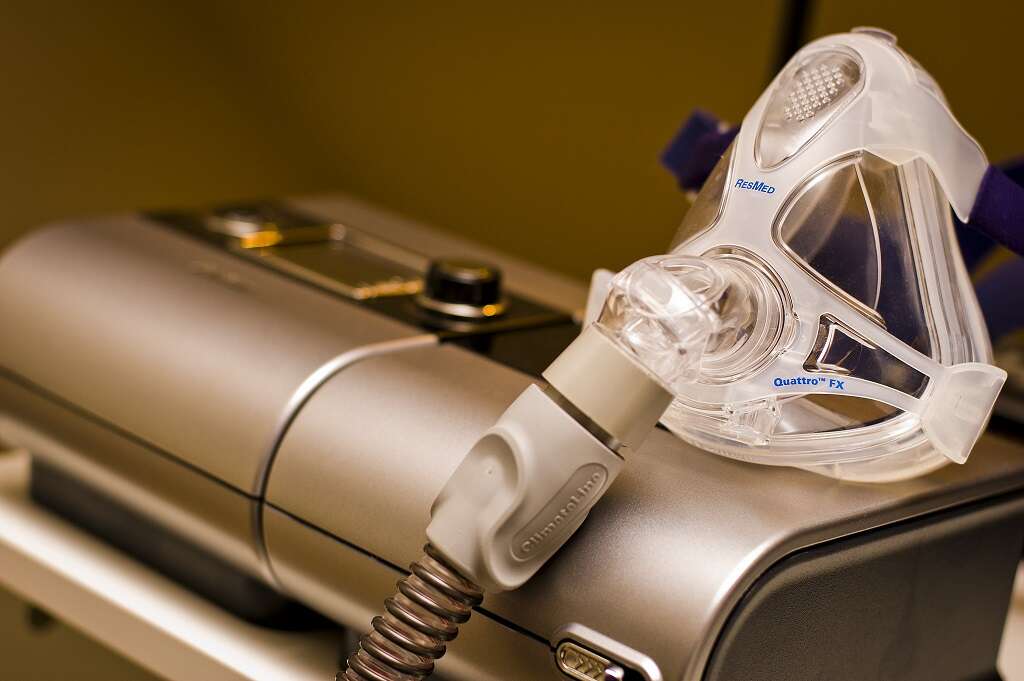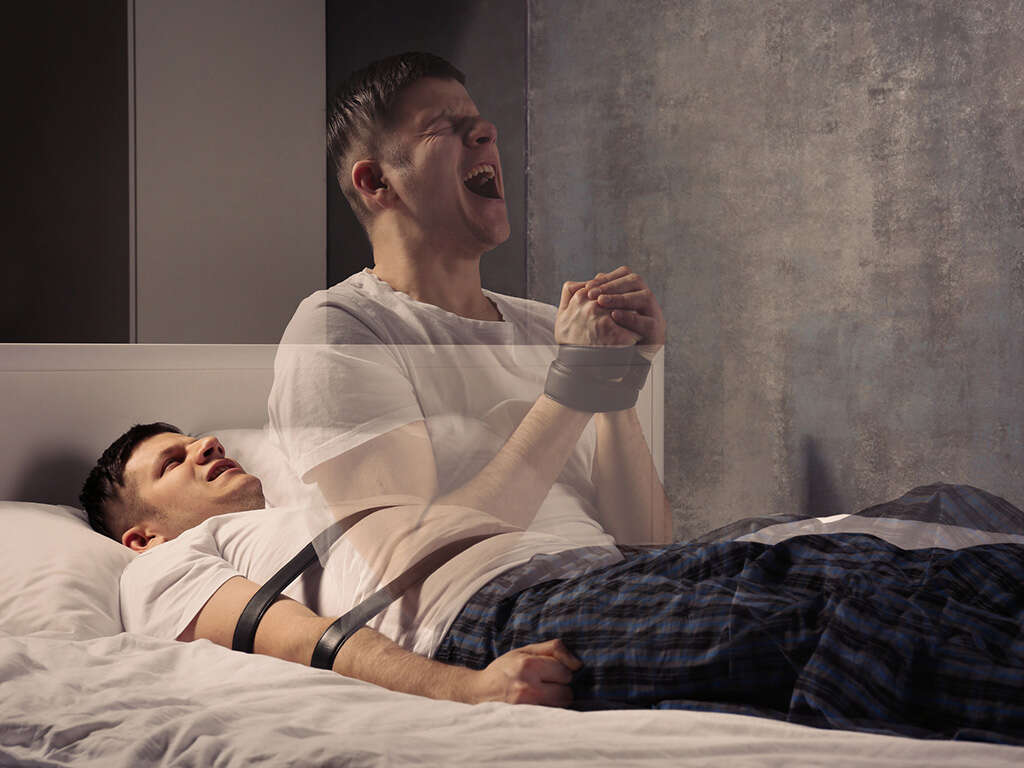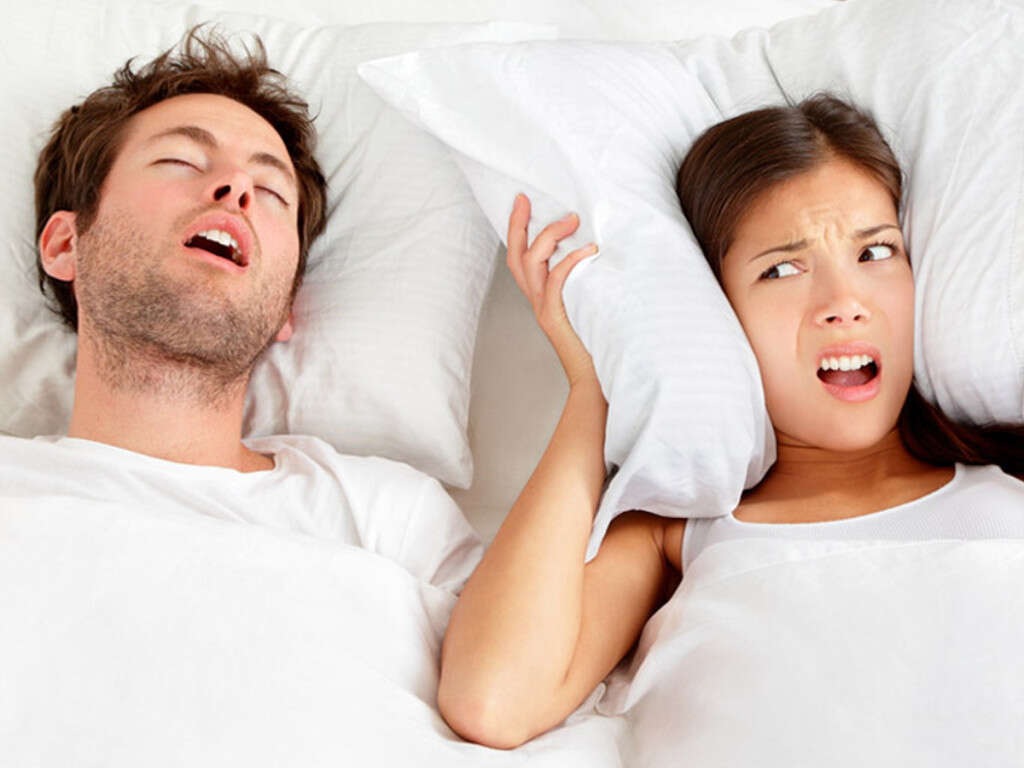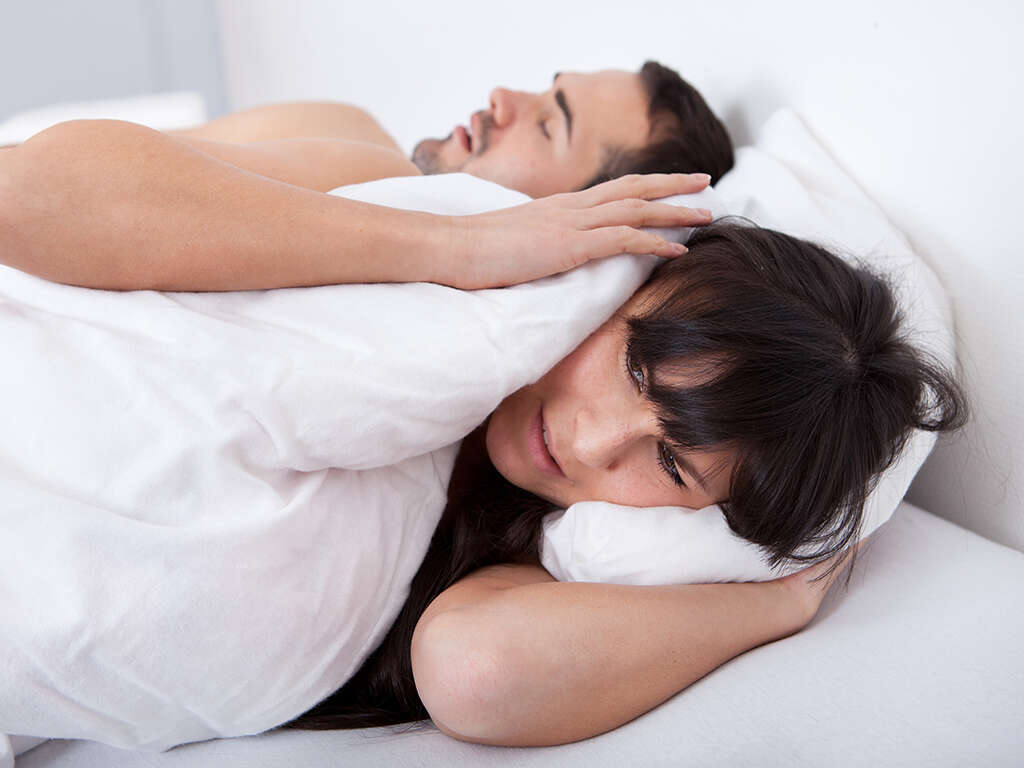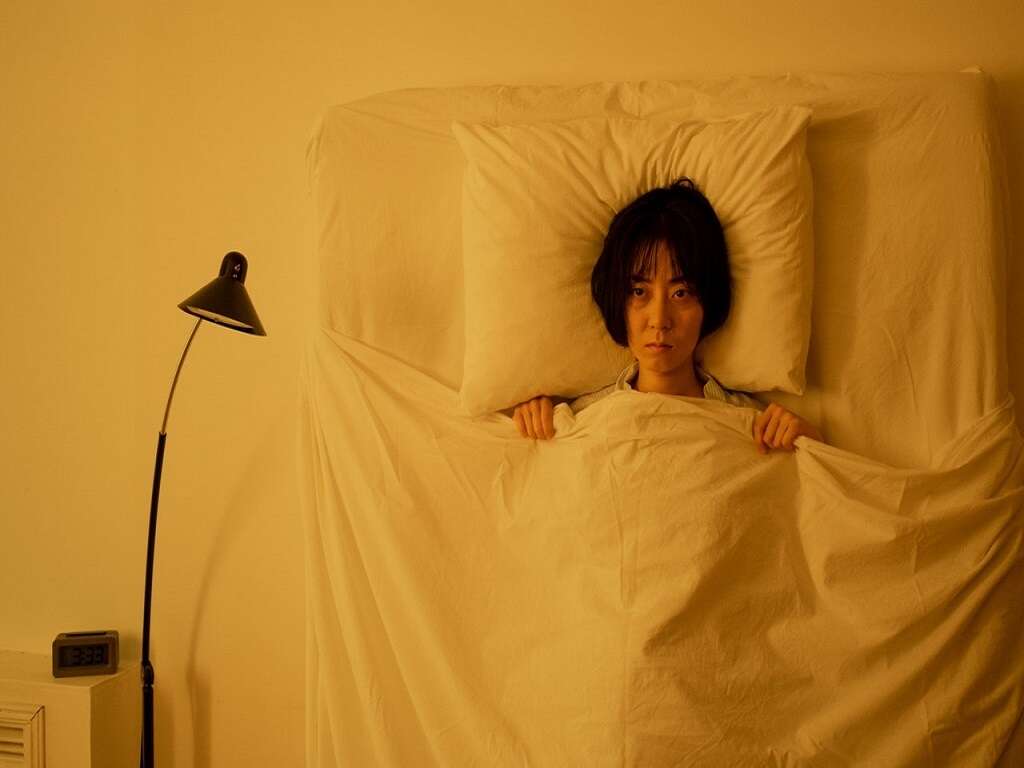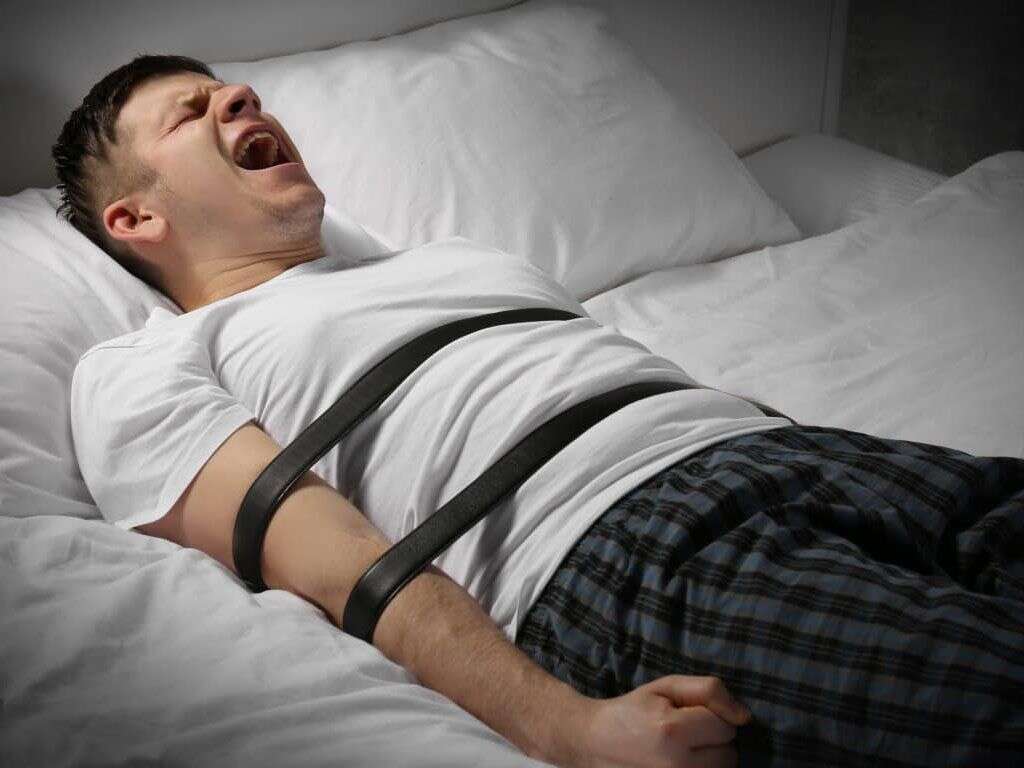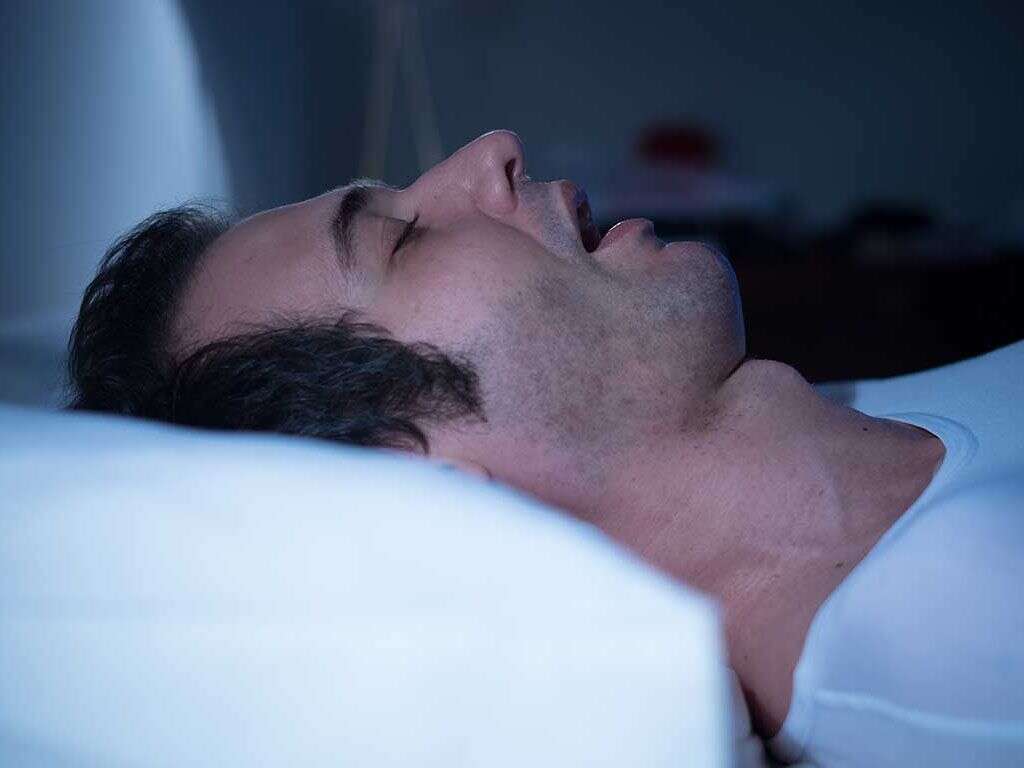10 Sleep Apnea Symptoms
 Article Sources
Article Sources
- 1. 'Sleep Apnea.' Mayo Clinic, Mayo Foundation for Medical Education and Research, 28 July 2020, www.mayoclinic.org/diseases-conditions/sleep-apnea/symptoms-causes/syc-20377631
- 2. 'Adult Attention-Deficit/Hyperactivity Disorder (ADHD).' Mayo Clinic, Mayo Foundation for Medical Education and Research, 22 June 2019, www.mayoclinic.org/diseases-conditions/adult-adhd/symptoms-causes/syc-20350878
- 3. 'Insomnia - Symptoms, Types, Causes, and More.' Sleep Foundation, 4 Sept. 2020, www.sleepfoundation.org/insomnia
- 4. 'Sleep Apnea: Causes, Symptoms, Tests & Treatments.' Cleveland Clinic, my.clevelandclinic.org/health/diseases/8718-sleep-apnea
- 5. 'Sleep Apnea.' National Heart Lung and Blood Institute, U.S. Department of Health and Human Services, www.nhlbi.nih.gov/health-topics/sleep-apnea
- 6. Team, Brain and Spine. 'Here's What Happens When You Don't Get Enough Sleep (And How Much You Really Need a Night).' Health Essentials from Cleveland Clinic, Health Essentials from Cleveland Clinic, 11 Mar. 2021, health.clevelandclinic.org/happens-body-dont-get-enough-sleep/
Sleep apnea is a potentially dangerous disorder where a person repeatedly has sleep disruptions. These sleep disruptions occur when the person stops breathing for varying amounts of time while asleep.
There are three types of sleep apnea. Obstructive sleep apnea is the most common form, occurring when the throat muscles relax during sleep. Central sleep apnea happens when the brain doesn't send the right signals to the muscles controlling breathing. Complex sleep apnea syndrome is where both forms exist at the same time and can potentially be a life-threatening problem.1‘Sleep Apnea.’ Mayo Clinic, Mayo Foundation for Medical Education and Research, 28 July 2020, www.mayoclinic.org/diseases-conditions/sleep-apnea/symptoms-causes/syc-20377631
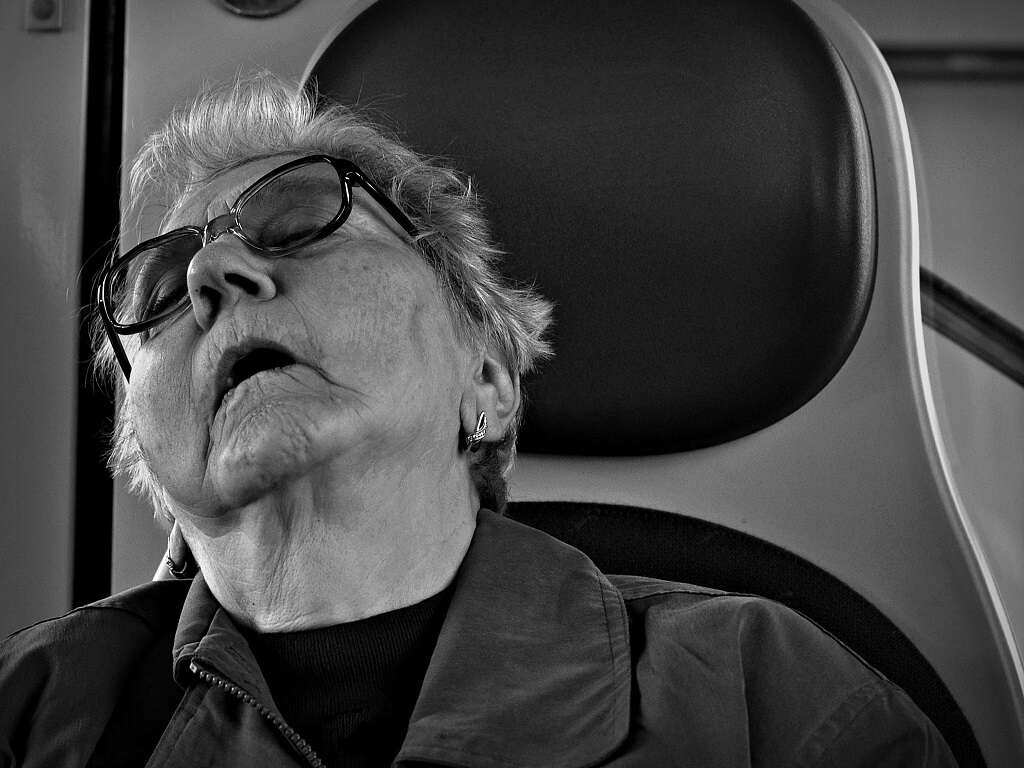
Loud Snoring
Loud snoring is commonly associated with all forms of sleep apnea, but the two aren't mutually inclusive. People may snore without having sleep apnea. Others who do have sleep apnea may not snore.
This symptom is commonly diagnosed after another person, like a spouse or parent, notices loud snoring over several nights. Those who sleep alone may notice a sore throat, dry mouth or headache upon waking that indicates snoring. When snoring is thought to be happening regularly, a doctor may recommend a sleep study. Sleep studies may also be recommended for those who have been told they snore by others.
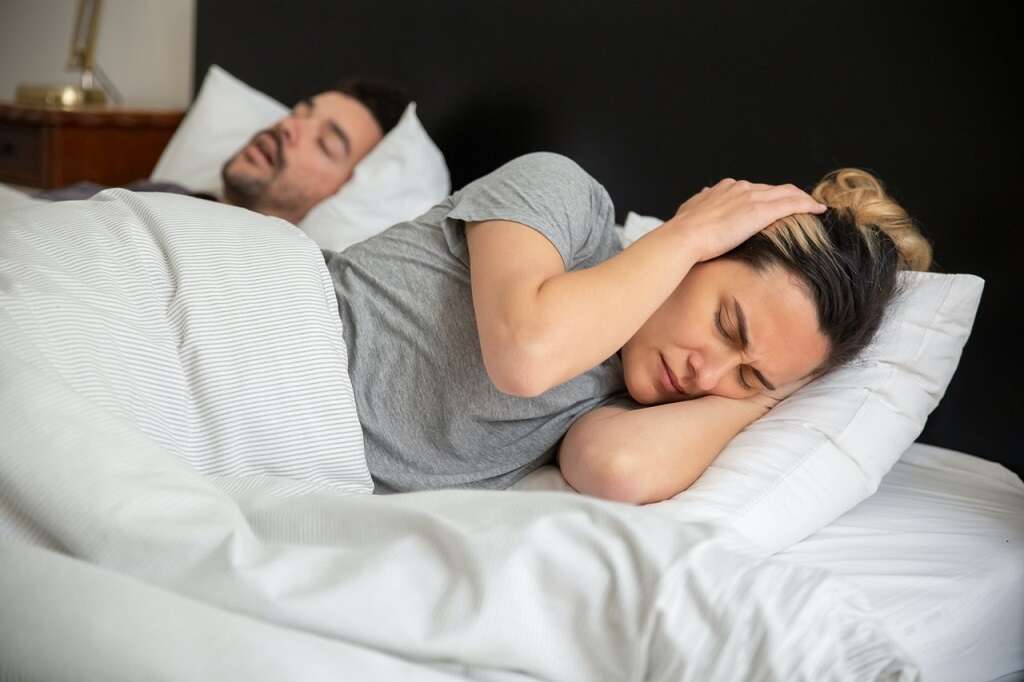
Difficulty Paying Attention
A lack of restful sleep can make paying attention difficult. Difficulty paying attention commonly presents itself as poor performance in work or school. Some people may have trouble concentrating and instead find themselves consistently zoning out.
When paired with other sleep-related symptoms, difficulty paying attention may be an indicator of sleep apnea. Many other issues can make paying attention difficult. ADHD is another common reason. ADHD also presents with impulsiveness, troubles coping with stress and frequent mood swings.2‘Adult Attention-Deficit/Hyperactivity Disorder (ADHD).’ Mayo Clinic, Mayo Foundation for Medical Education and Research, 22 June 2019, www.mayoclinic.org/diseases-conditions/adult-adhd/symptoms-causes/syc-20350878
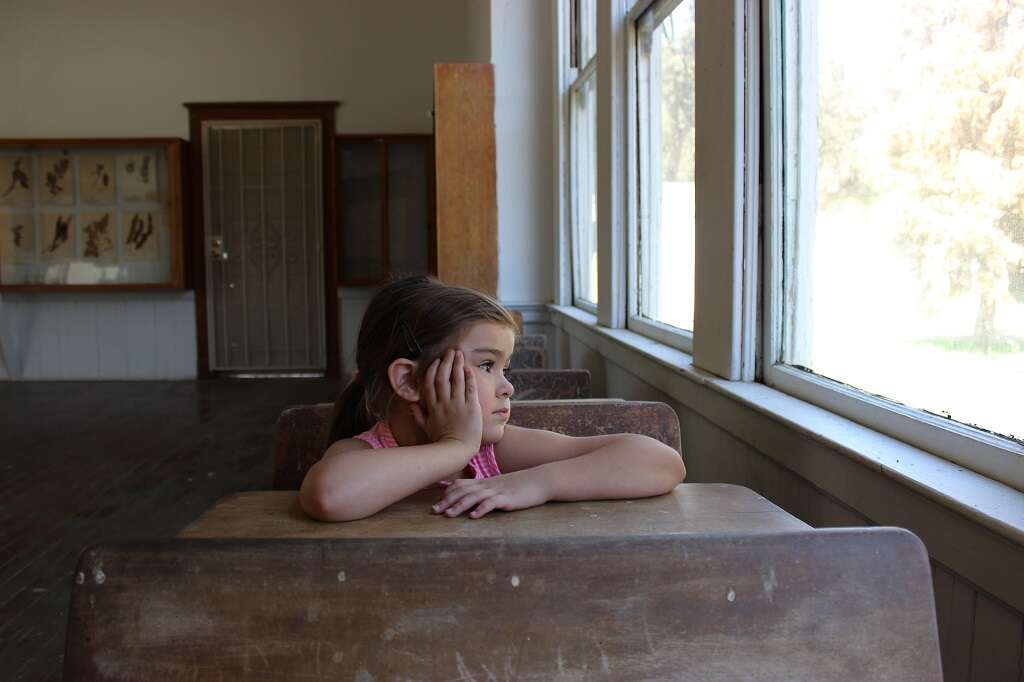
Morning Headaches
Mild morning headaches could be the result of snoring in sleep apnea. In moderate-to-severe sleep apnea, headaches are a possible result of prolonged periods without enough oxygen.
When the brain doesn't receive enough oxygen throughout the night, it may hurt. In obstructive sleep apnea, air can potentially get trapped in the lungs. This might lead to an increase in carbon dioxide inside the body, which also potentially leads to headaches.
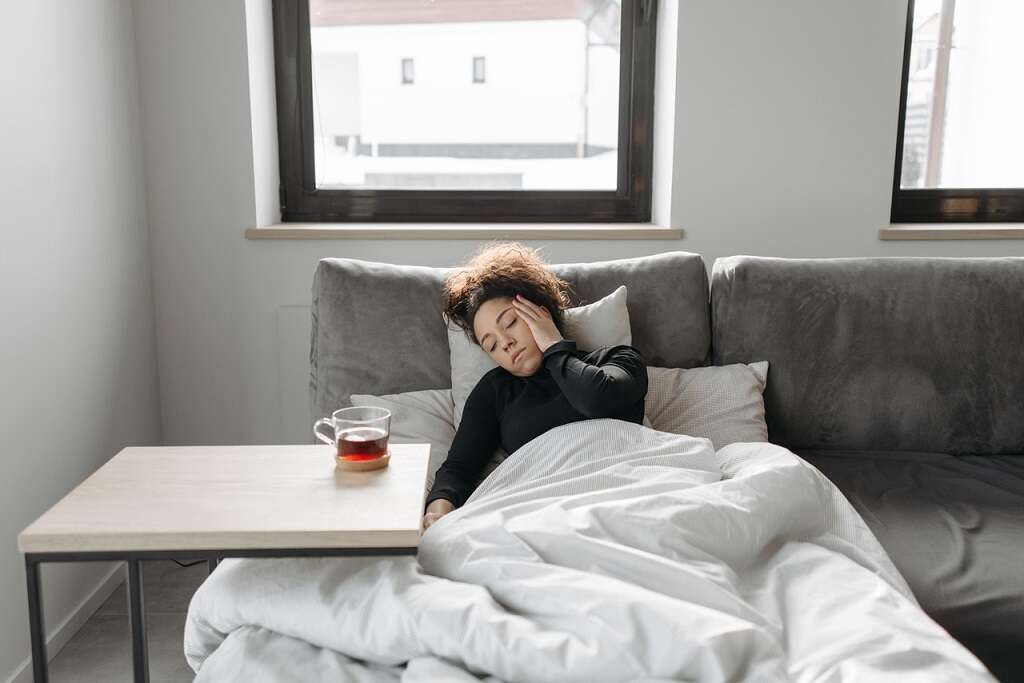
Insomnia
Insomnia is a condition where people have trouble falling asleep or staying asleep. While everyone has difficulties getting rest sometimes, people with insomnia have ongoing issues that can significantly disrupt their normal daytime activities. Insomnia can often be diagnosed after three months of persistent difficulties getting to sleep.3‘Insomnia - Symptoms, Types, Causes, and More.’ Sleep Foundation, 4 Sept. 2020, www.sleepfoundation.org/insomnia
While sleep apnea is one potential culprit of insomnia, there are many other possible causes. Excessive caffeine consumption, restless leg syndrome, heart disease, depression and anxiety can all cause insomnia.
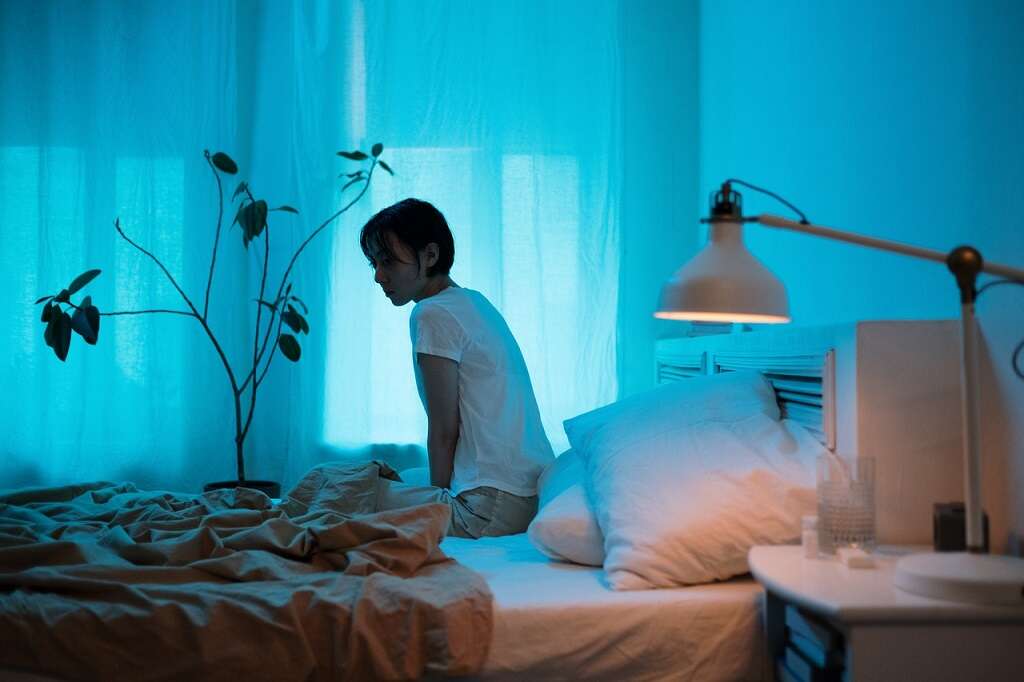
Hypersomnia
Hypersomnia is essentially the opposite of insomnia. People with hypersomnia may have difficulties staying awake, no matter how much sleep they get. Excessive daytime sleepiness and difficulties waking in the mornings are commonly seen in hypersomnia.
In sleep apnea, hypersomnia may be caused by a lack of restful sleep. When the body isn't receiving quality rest, the brain signals an ongoing need for more. Until sleep apnea is diagnosed and managed, hypersomnia will usually persist.

Dry Mouth or Sore Throat When Awakening
People who awaken in the morning or after a daytime nap with a dry mouth or sore throat may potentially have sleep apnea. These symptoms are commonly caused by snoring, which causes the mouth to remain open.
When the mouth remains open at night, it can dry out the mouth or cause the throat to become sore. The act of snoring itself may also be to blame for a sore throat, as it can potentially cause throat irritation.
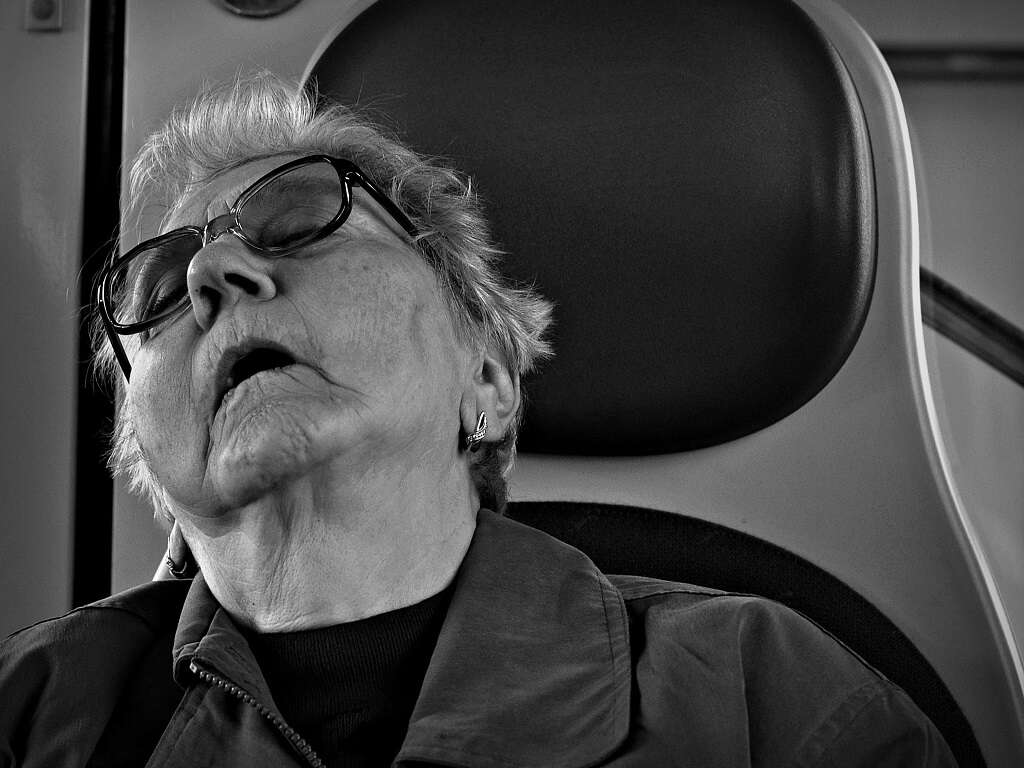
Irritability
Irritability commonly happens when a person doesn't get enough sleep. This is because the body requires a certain amount of sleep for optimal brain functioning and mental health. Sleep apnea's disruptions in the normal sleep a person gets can potentially cause irritability.4‘Sleep Apnea: Causes, Symptoms, Tests & Treatments.’ Cleveland Clinic, my.clevelandclinic.org/health/diseases/8718-sleep-apnea
Many people find themselves moody after not sleeping well or going to bed once in a while. However, the irritability commonly seen in those with sleep apnea is typically long term or ongoing.
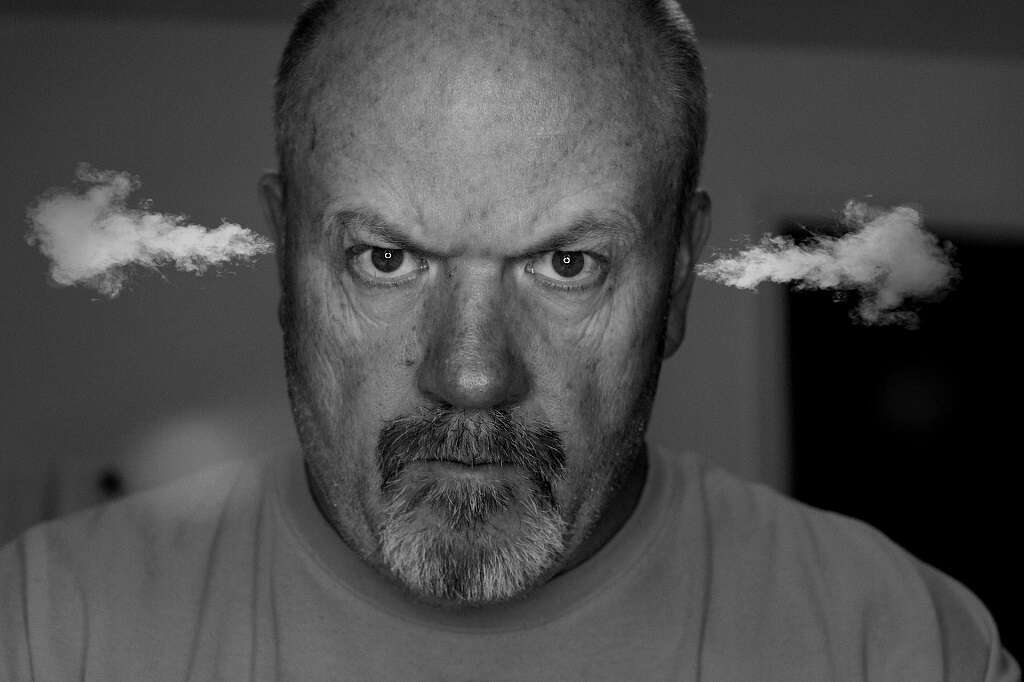
Frequent Nighttime Awakenings
Many symptoms of sleep apnea are first diagnosed by an outside person, such as a spouse or parent. For some, frequently waking up during the night and general tiredness may be the first signs of sleep apnea.5‘Sleep Apnea.’ National Heart Lung and Blood Institute, U.S. Department of Health and Human Services, www.nhlbi.nih.gov/health-topics/sleep-apnea People with sleep apnea have multiple and extended pauses in breathing when they sleep.
Sometimes, people are unaware as to why they're consistently waking up. Others wake up gasping for air or with a sudden urge to urinate. Some have difficulties sleeping, such as insomnia and hypersomnia.
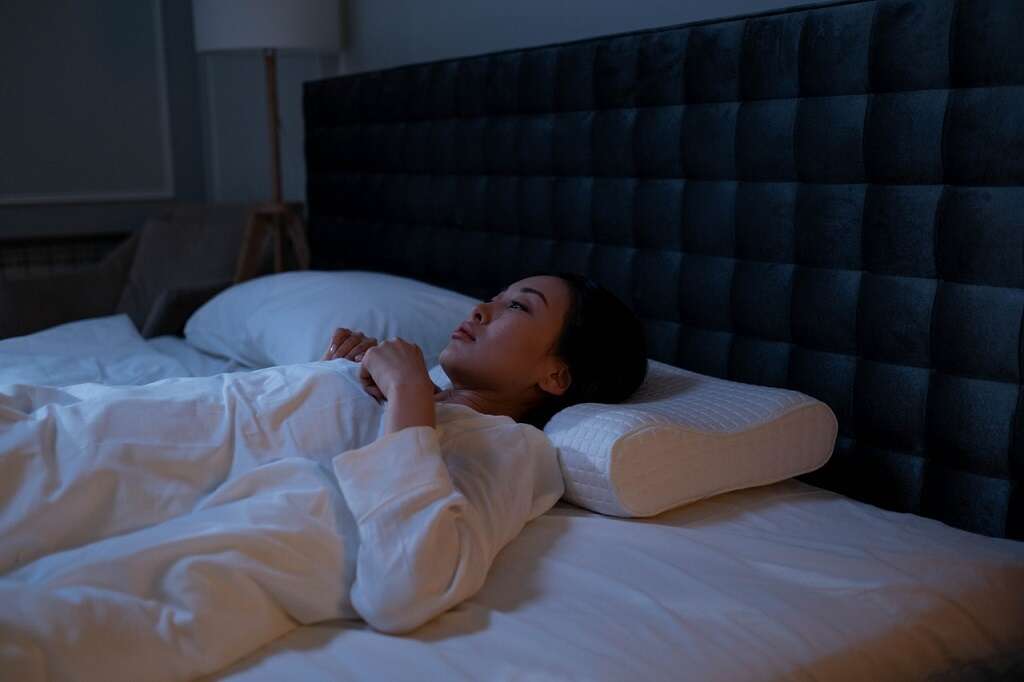
Decreased Motor Skills
Sleep deprivation can cause a range of potentially serious issues, including decreased motor skills. People with sleep apnea may find they drop things often or have issues driving vehicles.
Sleep deprivation can cause other problems, too, which may or may not appear alongside decreased motor skills. Other problems caused by or associated with lack of sleep include premature wrinkling, high blood pressure, decreased sex drive, diabetes, obesity and lowered immune system function.6Team, Brain and Spine. ‘Here’s What Happens When You Don’t Get Enough Sleep (And How Much You Really Need a Night).’ Health Essentials from Cleveland Clinic, Health Essentials from Cleveland Clinic, 11 Mar. 2021, health.clevelandclinic.org/happens-body-dont-get-enough-sleep/

Breathing Disturbances While Asleep
Breathing disturbances are the primary characterizing symptom in sleep apnea. People with this condition frequently stop breathing while asleep. The cause of breathing disruptions varies depending on the type of sleep apnea.
Breathing disturbances are generally managed with a CPAP machine. This machine works via a mask worn while asleep. The mask helps deliver oxygen into your airways with the intent of stopping breathing disruptions from happening. When a person no longer stops breathing while asleep, other symptoms improve.
